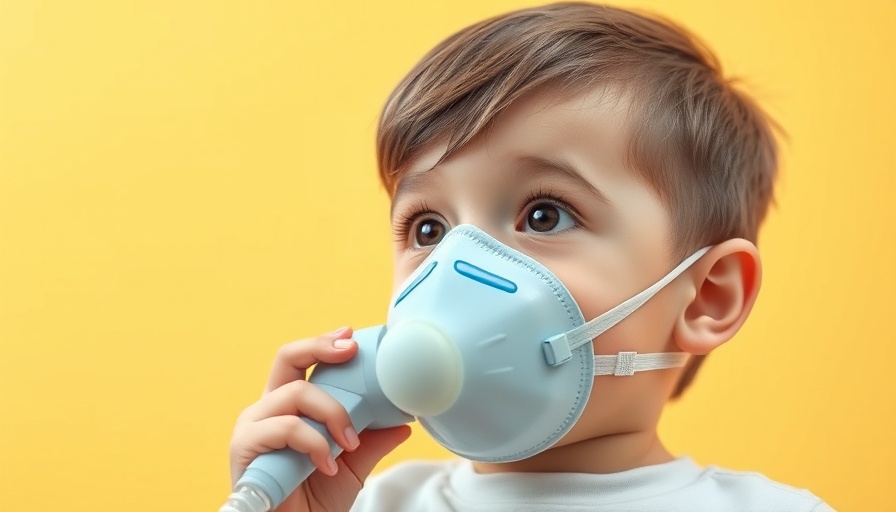
Understanding the Impact of Childhood Asthma, Allergies, and Diabetes
Chronic illnesses such as asthma, allergies, and diabetes pose unique challenges for families. They require consistent, lifelong management that goes beyond mere medical treatment; it demands emotional support and empowerment for both caregivers and children. When a child is diagnosed, it may feel overwhelming, but understanding the nature of these diseases can lead to better outcomes. Research suggests that effective communication with healthcare providers, caregivers, and educational institutions improves children's management of these conditions.
In 'Childhood Asthma, Allergies & Diabetes: Insights from a Pediatrician | Ask the Doc', the discussion dives into chronic illnesses affecting children, exploring key insights that sparked deeper analysis on our end.
The Triad: Asthma, Allergies, and Eczema
As Dr. Scarlet Constant discussed, children with a family history of asthma, allergies, or eczema—the triad—have a higher likelihood of developing these conditions themselves. Early signs, such as wheezing or eczema flare-ups, often occur in infancy. Parents should be vigilant in recognizing symptoms like shortness of breath during play, persistent coughing, and troubling sleeping patterns tied to respiratory distress. Proactively managing these symptoms and closely monitoring your child’s health can mitigate future complications.
Creating a Safe Home Environment
For families like that of Betsy, whose young child Dusty is dealing with allergies and asthma, creating a safe living space can significantly cut down allergens. Keeping dust at bay through regular cleaning and protective coverings for mattresses and pillows is essential. When it comes to the school environment, informing teachers and offering necessary medical supplies, like inhalers, ensures that children remain safe and can participate actively without feeling hindered by their conditions.
The Importance of Physical Activity
Dr. Constant emphasizes that children with asthma should not feel limited in their physical activities if their symptoms are well-managed. Engaging in sports and physical play is crucial for not only their physical health but also mental well-being. It's empowering for children to maintain a sense of normalcy, and the right treatment can help facilitate their active participation. Schools should be geared toward supporting these kids, making accommodations only during exacerbations while promoting engagement during normal times.
Managing Diabetes in Children
Diabetes management, as discussed with families like Carada's, also demands attentiveness. Type 1 and Type 2 diabetes are fundamentally different, with Type 1 being genetic and requiring insulin therapy. In contrast, Type 2 diabetes, often linked to lifestyle factors, necessitates dietary adjustments and increased physical activity. Continuous glucose monitoring is a modern marvel aiding kids in self-managing their conditions without being tethered to constant checks, thus giving them a measure of independence.
Parents’ Role in Chronic Illness Management
Parents play a pivotal role in managing children's chronic illnesses. Their responsibilities extend far beyond administering medications; they need to create awareness and foster proactive communication with healthcare providers. This includes not just understanding the conditions but ensuring children know how to articulate their feelings and symptoms as well. Emotional intelligence in children regarding their health can lead to better self-management and overall well-being.
Actionable Insights for Families on Health Management
Effective strategies for managing childhood asthma, allergies, and diabetes include understanding each condition's specifics and their potential overlap. Engaging the child in their health journey—such as encouraging them to ask questions and embrace their treatment—empowers them, fostering independence as they grow. Additionally, resources such as support groups or educational programs led by healthcare professionals can be particularly beneficial.
Conclusion: Embracing Challenges with Knowledge
Chronic conditions in children, while challenging, can be managed effectively with proper awareness and strategies. By staying informed, connected with medical professionals, and nurturing a supportive home environment, families can help their children thrive despite their health challenges. For anyone navigating these waters, remember—you are not alone. Join local support groups or connect with health enthusiasts to share experiences and readings. Knowledge is crucial in these journeys. Keep pushing forward for your family’s health and wellness!
 Add Row
Add Row  Add
Add 






Write A Comment